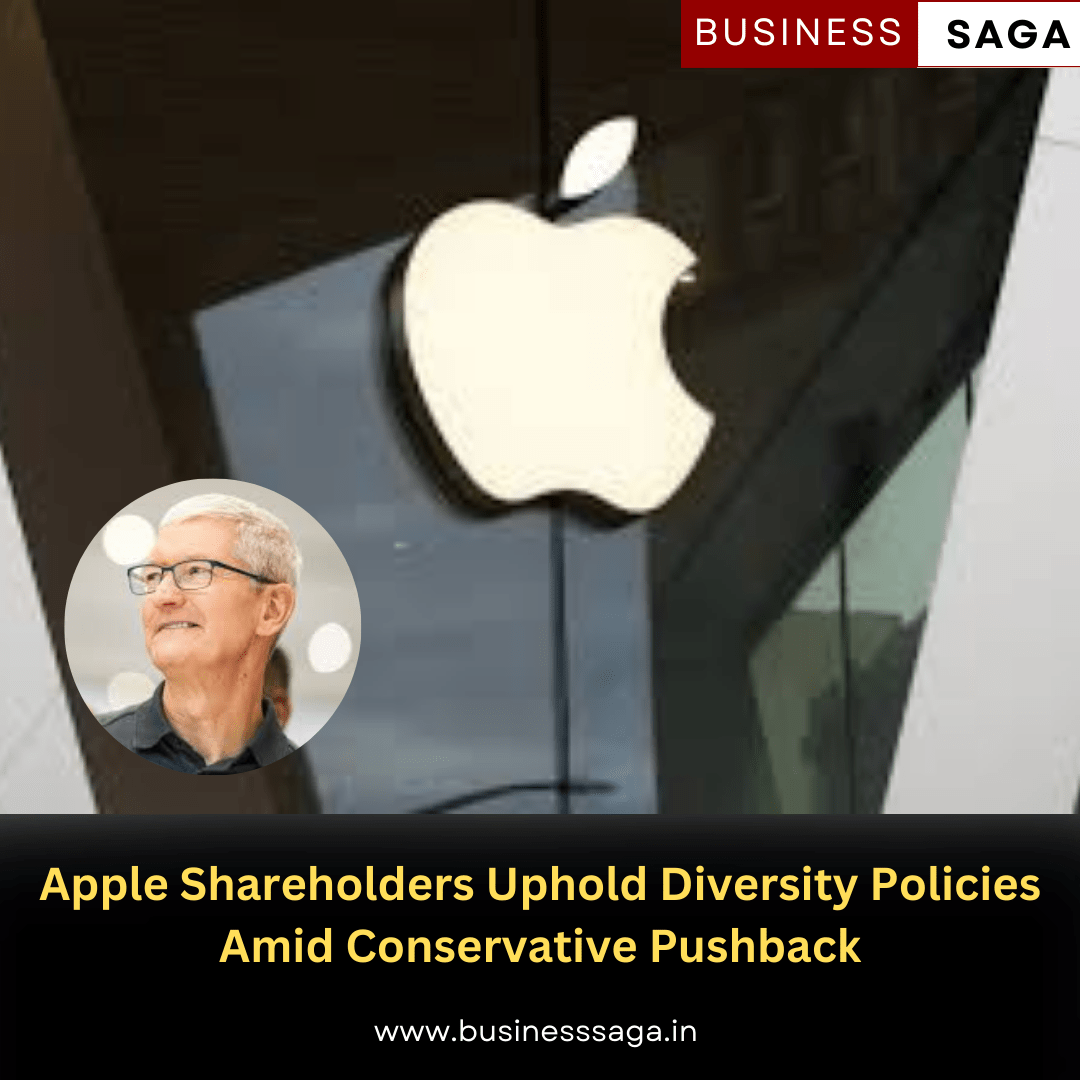
Summary: Apple shareholders recently voted to uphold the company’s diversity and inclusion policies, despite significant pushback from conservative groups. These policies, which focus on increasing representation within Apple’s workforce, have been integral to the company’s culture and success. Conservative activists argue that such diversity mandates may create divisions and undermine merit-based hiring. However, Apple’s leadership, including CEO Tim Cook, has emphasized that diversity drives innovation and is essential for long-term growth. The vote marks a win for diversity advocates and highlights the ongoing tension between progressive corporate values and conservative pressure in the business world.
In a pivotal moment for corporate governance, Apple shareholders have voted to uphold the company’s diversity and inclusion policies despite significant pushback from conservative groups. The decision highlights the ongoing tension between progressive corporate values and the conservative movement’s increasing influence on corporate America.
At Apple’s recent annual meeting, shareholders overwhelmingly voted to retain the company’s policies, which include diversity targets and efforts to increase representation within its workforce. The policies have been a cornerstone of Apple’s business strategy in recent years, contributing to a more inclusive corporate culture and a diverse product lineup. The company’s commitment to these initiatives has been praised by many as a reflection of its core values of innovation, creativity, and social responsibility.
However, the vote did not come without controversy. Conservative factions, including some activist investors, have been vocal in their opposition to corporate diversity mandates. These critics argue that diversity policies, especially those that set targets for gender, race, and ethnicity, create unnecessary divisions and may lead to reverse discrimination. In some cases, they contend that such initiatives are detrimental to business performance, claiming that a focus on diversity often leads to hiring quotas instead of merit-based decision-making.
The rise of these conservative voices has prompted companies like Apple to face difficult questions about how they balance their social responsibilities with the interests of their shareholders. In recent months, several high-profile CEOs have found themselves under pressure from both sides of the political spectrum, navigating complex political and societal dynamics.
Despite the pushback, Apple executives remain steadfast in their commitment to diversity, equity, and inclusion. In a statement following the vote, Apple CEO Tim Cook emphasized that these policies are integral to the company’s culture and success. “We believe that a diverse and inclusive workforce not only reflects the global community we serve but also drives the innovation that fuels Apple’s growth and success,” Cook said.
The vote is seen as a significant victory for corporate diversity advocates. Proponents argue that fostering an inclusive environment helps companies recruit and retain top talent from a variety of backgrounds, which is essential in an increasingly competitive global market. Furthermore, they point out that diverse teams are proven to produce better ideas and innovations, making diversity a key factor in long-term business success.
While the shareholder vote was largely in favor of Apple’s diversity policies, the debate over corporate diversity and inclusion is far from over. Similar clashes between progressive values and conservative pushback are expected to play out across other major corporations in the coming years, as both sides continue to press for influence in shaping the future of corporate America.
In the end, the vote serves as a reminder of the power of shareholders and the influence they can wield over corporate decision-making. But it also signals a broader societal shift, where the need for diversity and inclusion in the workplace is being recognized as a core business strategy that goes beyond politics, and one that aligns with the global and social demands of the 21st century.
Apple’s decision to maintain its diversity policies, despite the growing conservative opposition, stands as a defining moment for the tech giant and may inspire other companies to uphold similar principles, setting a precedent for future corporate governance practices across industries.
Check out more on Startup Funding News. Stay connected with us across all our social media platforms: Facebook, Instagram, LinkedIn, X (formerly Twitter),Google news and Join Our Community.
Last Updated on: Thursday, February 27, 2025 4:46 pm by Aarti Kumari | Published by: Aarti Kumari on Thursday, February 27, 2025 4:46 pm | News Categories: Business News Today
About Us: Business Saga (businesssaga.in) covers a wide range of topics, including India news, business updates, startup insights, technology trends, sports, entertainment, lifestyle, automobiles, and more, led by Editor-in-Chief Ankur Srivastava. Stay connected on Website, Facebook, Instagram, LinkedIn, X (formerly Twitter), Google News, and Whatsapp Channel.
Disclaimer: At Business Saga, we are committed to providing accurate, reliable, and thoroughly verified information, sourced from trusted media outlets. For more details, please visit our About, Disclaimer, Terms & Conditions, and Privacy Policy. If you have any questions, feedback, or concerns, feel free to contact us through email.
Contact Us: sagaiptwo@gmail.com

Leave a Reply